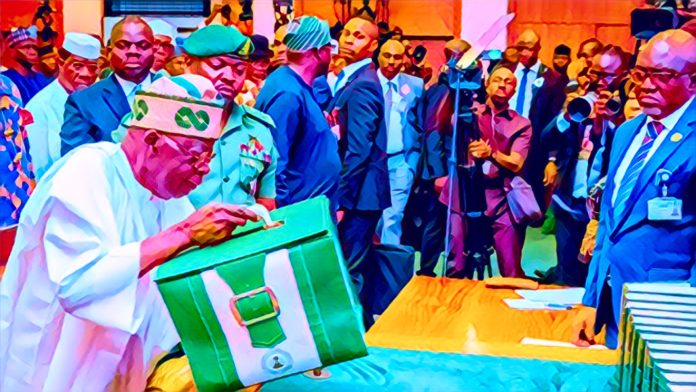KEY POINTS
- The 2025 budget is Nigeria’s lowest in dollar value since 2018.
- NES projects an exchange rate of N1,850/$1 for 2025.
- Capital expenditure is just 16% of the proposed 2025 budget.
Nigeria’s proposed 2025 budget of N47.9 trillion is the lowest in dollar terms since 2018, according to the Nigerian Economic Society (NES).
2025 budget sets record in naira, but shrinks in dollars
In a statement signed by NES President Adeola Adenikinju and obtained by BusinessDay on Tuesday, the association noted that while the budget is at a record high in naira terms, its value has been significantly eroded by the naira’s devaluation against the U.S. dollar.
“In nominal terms, the 2025 budget is the largest naira-denominated budget in Nigeria’s history. However, in real purchasing power at constant U.S. dollars, it is the lowest since 2018,” the statement said.
At the prevailing exchange rate of N1,679/$1, the budget translates to $27.96 billion, a 17.76% drop from the 2024 budget of $34 billion. Using the official exchange rate of N1,400/$1, the value is $34.14 billion, still lower than the 2022 and 2021 budgets valued at $39.8 billion and $35.66 billion, respectively.
Adenikinju called the N1,400/$1 exchange rate benchmark ambitious, saying it deviates from fiscal projections and might require alternative forex sources. He added that NES projects an exchange rate of N1,850/$1 in 2025, aligning with global financial institutions’ forecasts.
NES recommended revising the oil price benchmark from $75 per barrel to $70 to account for potential price shocks.
Accoridng to Businessday, The association warned that higher U.S. oil production and a potential de-escalation of geopolitical tensions could push oil prices down to $40 per barrel in 2025. As of Nov. 18, Brent crude traded at $73 per barrel, while Nigeria’s Bonny Light was at $80.
The proposed oil production target of 2.06 million barrels per day is feasible if the government continues its crackdown on oil theft and pipeline vandalism, NES noted.
Deficit concerns and capital spending fall below expectations
The government is projecting a budget deficit of N13.8 trillion, or 3.87% of GDP, exceeding the 3% ceiling under the Fiscal Responsibility Act of 2007. NES urged the National Assembly to review past budgets to determine a sustainable deficit for 2025.
Data from the 2024 budget showed a deficit reaching 7.5% of GDP by August, suggesting a likelihood of exceeding 2025 projections.
The 2025 budget allocates N7.72 trillion to capital expenditure, only 16% of total spending—well below the 50% recommended for developing countries.
Adenikinju warned this could limit infrastructure growth, job creation, and poverty reduction.
NES emphasized addressing insecurity, inflation, naira volatility, and weak infrastructure to attract foreign investment and drive economic growth. Without these measures, the budget’s impact on Nigeria’s core socioeconomic challenges could remain limited.



